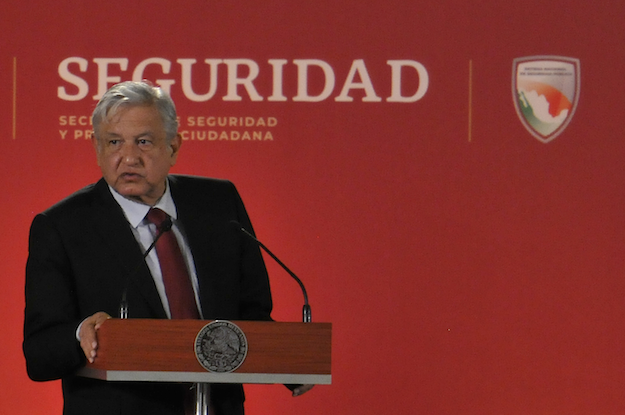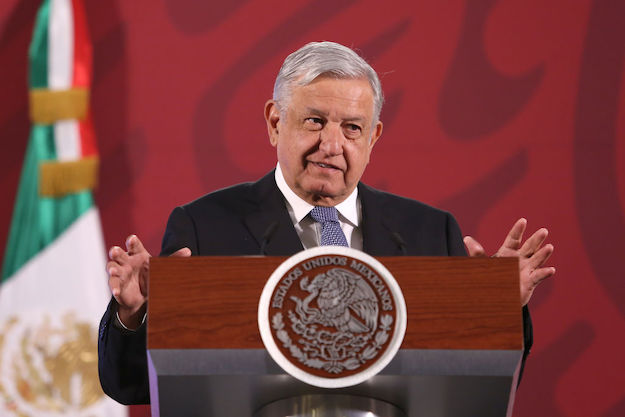After taking the oath of office last December, President Andrés Manuel López Obrador told lawmakers that he was embarking upon a “profound and radical transformation” to end the “corruption and impunity that impede the rebirth of Mexico.”
Two months into his term, it is time for his administration to advance one of his boldest commitments – inviting international participation in Mexico’s justice system.
During the electoral campaign, López Obrador faced insistent demands for an end to the violence that continues to convulse Mexico, including from victims’ families. Fed up with the failures of successive governments, they wanted a UN-backed, Mexico-based effort to investigate and prosecute atrocity crimes and corruption. López Obrador agreed to this demand during the campaign. After his victory, in a dramatic and well publicized meeting with families of the disappeared, he tasked senior officials to work with them on the design of such an initiative.
The desperate need for a new approach has been underlined by the New York trial of Joaquín “El Chapo” Guzman, the former leader of the Sinaloa Cartel, with its dramatic allegations of corruption at the highest levels of Mexico’s government. At the same time, crime figures for 2018, released in January, showed a new record number of reported homicides across the country, with over 33,000 new cases, a 15 percent increase over the previous year.
Victims know that institutions implicated in crime and corruption will not investigate and prosecute themselves. They want the creation of something like the UN-backed International Commission against Impunity in Guatemala, known as CICIG, which has achieved impressive breakthroughs in dismantling criminal structures at the highest political levels in Guatemala (leading to a standoff with the current government).
After such failures as the botched federal investigation into the disappearance of 43 students from Ayotzinapa in 2014, the hope is that collaboration between international experts and Mexican justice sector officials could inject independence and promote institutional reform.
But AMLOS’s priority on law and justice has been to create a new National Guard to supplement the efforts of the armed forces and police across the country. It is far from clear how more militarized policing will avoid the quagmire of violence and corruption that has ensnared every other federal, state and local security and law enforcement agency.
The president and his allies also missed an opportunity to select an independent reformer to head the newly created federal prosecutor’s office. The new body replaces the former attorney general’s office, but de facto remains an arm of the executive branch. López Obrador’s security adviser, Alejandro Gertz Manero, was voted in by the Senate to take the job for nine years.
If López Obrador is unwilling to accept an independent federal prosecutor, will he really accept an independent international body?
The government did not join civil society meetings that took place in December to discuss steps needed to establish an international mechanism. Nor did it include the creation of an international mechanism in the list of its first 100 commitments.
An optimist might conclude that the new administration is overburdened with other demands, and it is true that they have made advances on important, related initiatives. López Obrador’s government has moved to decriminalize marijuana, a shift away from Mexico’s unrelenting drug war policy. It has created a commission to establish the truth about the 2014 killings and disappearances of the Ayotzinapa students. And this week it announced its national plan for the search of the disappeared.
But none of this will make much difference without a radically different approach to the justice system. Mexico needs the political will to build the capacity for independent investigation and prosecution. An expert group from the Inter-American Commission revealed fundamental shortcomings, and probable criminality, in the Ayotzinapa investigation conducted under former President Enrique Peña Nieto. It also demonstrated the limits of a regional body and a largely case-specific mandate. A UN-backed international commission against impunity in Mexico would be no panacea. But it may be the best chance López Obrador has to keep violence and corruption from consuming his other priorities.
—
Witte manages the National Trials for Grave Crimes project at the Open Society Justice Initiative.






